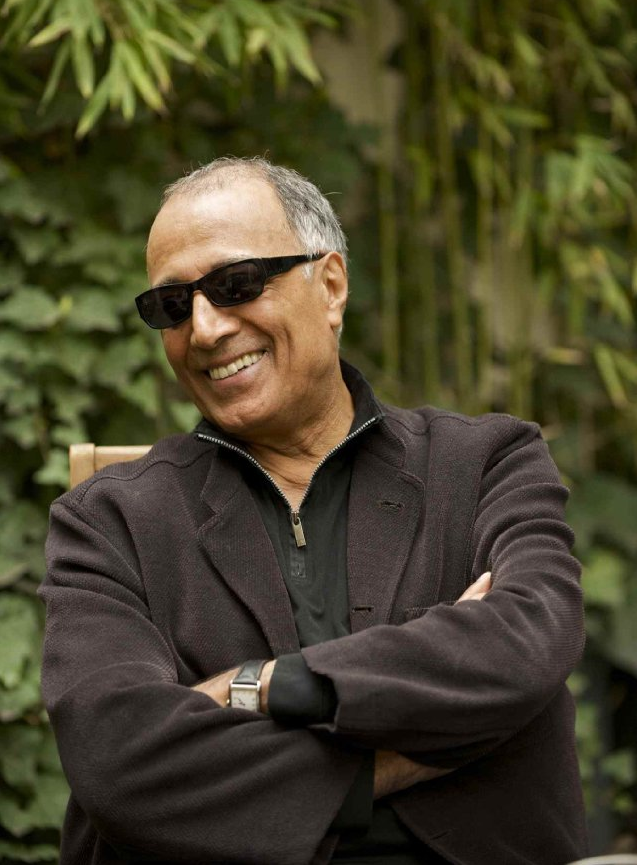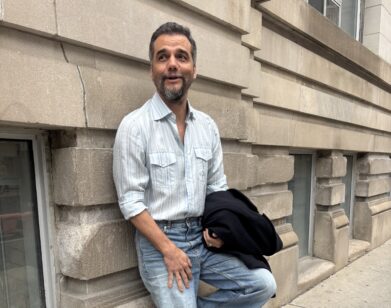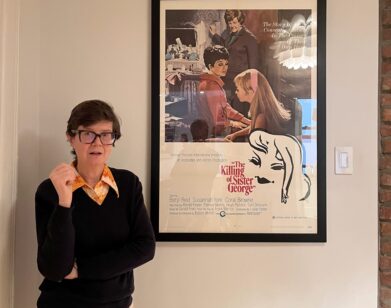Abbas Kiarostami’s Tokyo (Short) Story

ABOVE: ABBAS KIAROSTAMI
Like Someone in Love by Abbas Kiarostami (Close-Up, Taste of Cherry, Certified Copy) is an uneventfully captivating portrait of life as it happens. As it is expected to happen. And how the same heartbeat that meters our day is the duration it takes for everything to change. Set in Tokyo, the film follows Akiko (Rin Takanashi), a college student and call girl, who in the film’s first minutes is introduced to the audience as an unidentifiable voice in a restaurant, off-screen and lying to her boyfriend on the phone. Next, she argues with her pimp. As Kiarostami is careful to establish, Akiko is helplessly stuck. In a cab on the way to a client’s house, she listens to voicemails from her grandmother with a detachment so critical it nears calm.
The client, played by Tadashi Okuno, is an elderly professor who shuffles from task to task with a cartoonish, lonely mien. His life is tidy, routine, and nostalgic. His students, one gets the sense, are his only link to the present. Akiko’s arrival—at first awkward, soon sweet and platonic, and eventually preoccupying—supposes a tenderness the professor has kept stored for years. Theirs is an inescapable mutuality that spans 24 hours. With few characters and long conversational takes, Like Someone in Love, much like its title, is imprecise—an approximation of what happens when two strangers meet.
DURGA CHEW-BOSE: Right until the end, the pacing of Like Someone in Love is steadied like that of a short story. Was that a structure you were conscious of when writing and making the film? Are there any short stories in particular that may have inspired this narrative?
ABBAS KIAROSTAMI: It’s very interesting, I cannot quote one specific short story, but I often say to my students in workshops that if they are trying to find literary inspiration, they should not go and read novels, because novels are more appropriate for series. Where as they should read short stories—that’s the right format for you to be able to actually display the narrative in a film. And I would say that I am not even patient myself for reading long novels anymore, so yeah, I do recognize myself in that format and I understand why you see a parallel between my film, especially so in its ending. Also, there are two other aspects that make my film have common aspects with short stories; the few characters and the short period of time.
CHEW-BOSE: Can you speak to your relationship to storytelling? Telling stories, as it happens in your films, seems integral.
KIAROSTAMI: It’s true that it’s very important in my life. Maybe more than a teller, I am a story listener. I really enjoy listening to stories. I remember them and keep them in my mind. All of my films are a collection of small stories that have been told to me. And maybe you would be interested in knowing how I choose my students in the school in Iran where I teach filmmaking? I don’t ask them to have studied film or any education in general. What I ask them is to come and sit and tell me a story, and the way they choose it and tell it, for me, the best criteria for whether they are right for making films. There’s nothing more important than being able to tell your story orally.
CHEW-BOSE: Yeah, the jokes that are told in Like Someone in Love are a perfect example of how someone might or might not, be able to relay a short short story.
KIAROSTAMI: Exactly, exactly, that’s perfect. You’ve noticed that same joke told by two different people, once works, and the other time doesn’t, simply because how the person edits it. The silences, the pauses, what they neglect, what they emphasize—all of this matters.
CHEW-BOSE: So much of the film considers that which we cannot see, but perhaps hear, like a voice off-camera. Or how in conversations between two people, the camera sticks with the listener. There camera is patient, observant, unexpectedly poignant, and in some scenes, like the first one, very mysterious.
KIAROSTAMI: I’ve made a film called Shirin. It is a long image answer to your question. It’s about listeners and spectators. It’s about an epic love film, but all you see is the effect of the film on its spectators.
CHEW-BOSE: The title, too, reminded me of a short story, because there’s an indefinite quality to it. Like the movie, it isn’t exact and doesn’t impose meaning. It’s ambiguous.
KIAROSTAMI: All I can say now is go back to your own questions because they answer more than I can. Your questions are so interesting.
CHEW-BOSE: There’s one line in the movie, where Akiko is speaking with Takashi and he corrects something she’s said. Her response is: “I’d rather not know all the mistakes I’ve made.” That particular expression really stood out to me; as if remaining unfamiliar with oneself is by some means a way of preserving oneself.
KIAROSTAMI: Originally, it’s a genuine memory from school. I remember when I came out of an exam thinking I had done well and then I had a clue that maybe one answer was wrong, I remembered that I rather stop knowing, stop thinking about it, appreciating life instead. So first, it was just a memory. But then I realized that in life, it’s a much more general sentiment—that instead of waiting for other people’s judgment, I’d rather focus on my own feelings, that everything is fine. To go on with my life rather than anticipating other people’s judgements that might be negative.
CHEW-BOSE: Tokyo is shot in such a manner that the camera remains at eye level. It never pans up to appreciate, for instance, a building’s height. Or it’s never too wide, as though including an entire street or row of streets. Instead, it’s very near and focused. Scenes in cars, remain within the car. Scenes indoors are shot intimately. You haven’t shot the city as though you are visiting but instead, as a place that is very familiar to you.
KIAROSTAMI: Well I tried to avoid any tourist inclinations. My aim was to show Japanese people just like Iranian people or like American people. I didn’t want to impress anyone with the specificity of the city’s architecture; I wanted the human nature to show, how universal certain aspects are. No focus was put on differences but rather, on resemblances.
LIKE SOMEONE IN LOVE SCREENS AT 6 PM THIS EVENING AS PART OF THE NEW YORK FILM FESTIVAL. FOR MORE INFORMATION, VISIT NYFF’S WEBSITE.






